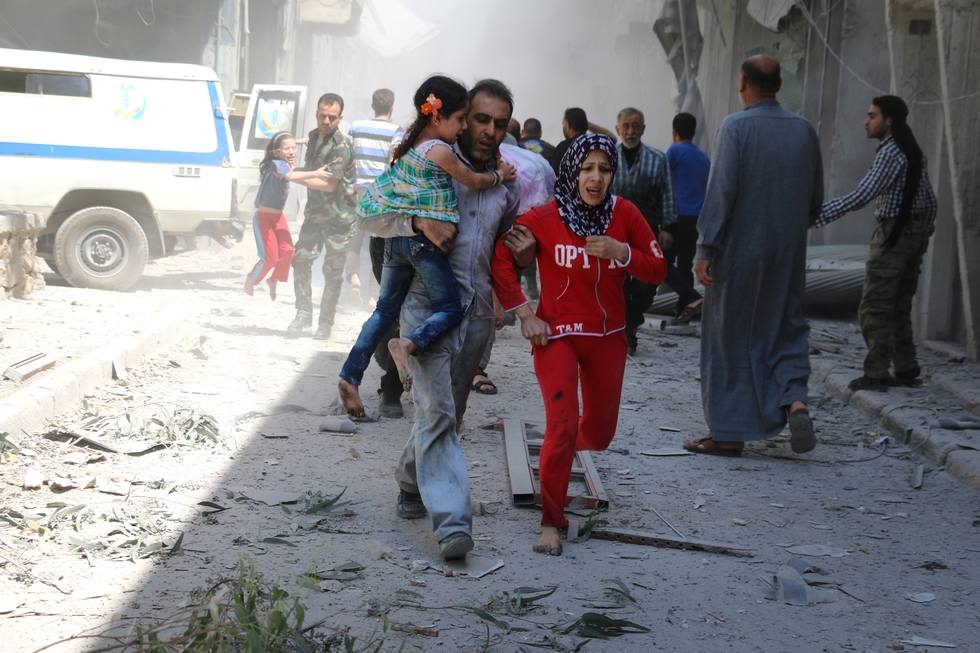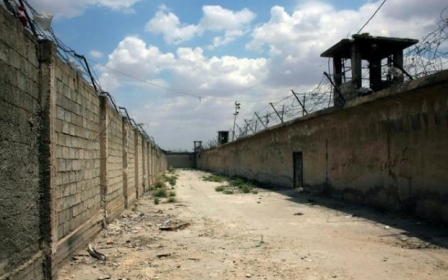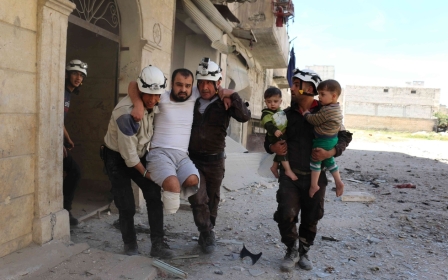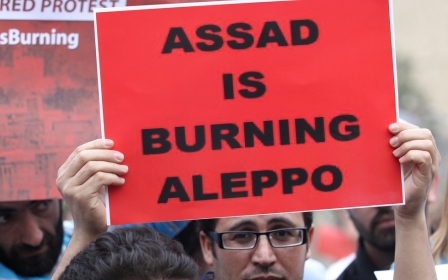UN accuses Syrian government of blocking aid to Aleppo

The UN has accused the Syrian government of refusing UN appeals to deliver aid to 905,000 people, including in war-torn Aleppo, as the city suffered another day of attacks despite efforts to secure a ceasefire.
"We seem to be having new possible besieged areas on our watch, we are having hundreds of relief workers unable to move in Aleppo," UN humanitarian adviser Jan Egeland said after a weekly humanitarian meeting of nations backing the Syria peace process.
"It is a disgrace to see while the population of Aleppo is bleeding their options to flee have never been more difficult than now."
The accusation comes as the US Secretary of State John Kerry warned Syrian President Bashar al-Assad of "repercussions" if his government flouts a new truce being negotiated, as talks to halt the violence shifted to Berlin on Wednesday.
Russia has said a new ceasefire to halt fighting in Aleppo could be imminent, with Syria's divided northern city hit by a wave of violence that has killed more than 270 people since 22 April.
Reports on Wednesday said at least three people had died in new attacks in the city, as rebel forces pressed an offensive against government troops on the city's western outskirts.
With the UN Security Council to hold urgent talks on the crisis later on Wednesday, diplomatic efforts to stem the violence shifted to Germany where Foreign Minister Frank-Walter Steinmeier was to meet UN Syria envoy Staffan de Mistura, Syria's main opposition leader Riad Hijab and France's top diplomat Jean-Marc Ayrault.
Renewed fighting between government and rebel forces has centred on Aleppo, where heavy clashes left around 30 people dead on Tuesday, with Kerry issuing a stark warning to Assad if his government failed to abide by the new deal.
"If Assad does not adhere to [the new ceasefire], there will clearly be repercussions and one of them may be the total destruction of the ceasefire and they go back to war," Kerry told reporters after returning from an earlier round of talks in Geneva.
"I don't think that Russia wants that. I don't think Assad is going to benefit from that," Kerry added.
The Security Council meeting to discuss the bloodshed, which is threatening to derail international peace efforts to end the five-year war in Syria, was called for by France and Britain.
"[Aleppo] is to Syria what Sarajevo was to Bosnia," said France's UN ambassador Francois Delattre.
Russian Foreign Minister Sergei Lavrov said late on Tuesday he hoped to agree on a freeze of fighting in Aleppo "in the near future, maybe even in the next few hours", after meeting de Mistura in Moscow.
A 27 February truce between Assad and rebels raised hopes for efforts to resolve the five-year conflict, but it has come close to collapse due to the recent surge in violence.
After a relative lull on Monday and early on Tuesday, rebels in eastern Aleppo fired at least 65 rockets into government-controlled neighbourhoods, Syrian state news agency SANA said.
The rockets killed 16 people and wounded 68, including at least three women at al-Dabbeet maternity hospital, it reported.
It was the sixth time a medical facility has been hit in 11 days in Aleppo, the International Committee for the Red Cross said, calling it "unacceptable".
The Syrian Observatory for Human Rights monitor said it counted at least 19 dead and 80 wounded from the attacks on government-held areas, while civil defence workers said air strikes on the rebel-held east killed 11 civilians, including a child.
Fierce fighting also raged on Aleppo's western edges after rebels detonated explosives in a tunnel, an AFP correspondent said, adding the clashes subsided at nightfall.
New MEE newsletter: Jerusalem Dispatch
Sign up to get the latest insights and analysis on Israel-Palestine, alongside Turkey Unpacked and other MEE newsletters
Middle East Eye delivers independent and unrivalled coverage and analysis of the Middle East, North Africa and beyond. To learn more about republishing this content and the associated fees, please fill out this form. More about MEE can be found here.




